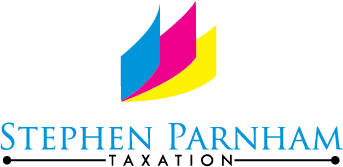The Chancellor must strike a balance between commitments made prior to the election and the need to generate revenue.
The Conservative Party’s manifesto pledge for a tax lock on income tax, VAT and national insurance limits the Chancellor’s room for manoeuvre and we may consequently expect to see measures designed to expand the tax base in other areas.
Personal Tax
The triple lock ties the Chancellors hands with the three biggest taxes that together make up around two thirds of the overall tax revenues. For this reason alone it is unlikely that the Government will reduce the top rate of income tax to 40%, despite calls from prominent figures including Lord Lawson. A reduction in the 45% rate is more likely to happen over the course of the parliament on political grounds in any event.
The Government will probably need to look at the 40% rate in the medium term. The increasing number of people being drawn into higher rates has become a form of stealth tax…. and people have noticed !
For Scotland we can expect full devolution of income tax rates and bands for earned income.
Business tax
Attention in the last Parliament was firmly on the low 20% headline rate of corporation tax and now the Chancellor will wish to create the stable and predictable environment thatbusiness hopes for over the next five years. The Chancellor may therefore be expected to maintain the corporation tax level at 20% to ensure that the UK maintains the most competitive regime amongst the G7 nations. It is, after all, the same rate as in Russia and Estonia.
The higher annual investment allowance has altered four times since 2008 and a fifth is now on the cards. The Chancellor has previously implied that the allowance will not return from its current £500,000 level to its more basic £25,000 ( which it will do on 1st January 2016 without further measures ). A “significantly higher” permanent annual level was promised in the Conservative Party’s election manifesto so my inclination is for it to gravitate to around £250,000 this time … if not now then in the medium term.
In the last Budget we heard of the Government’s intention to fundamentally review business rates and now that the consultation has closed we may anticipate an update as to current Government thinking.
The bank levy was designed to encourage a move away from riskier funding models to reduce systematic risk. This has been fairly successful although it was not really designed as a long-term means for the Exchequer to raise revenue. There is no easy option for the Chancellor as things stand. The choices are either to keep to the status quo and penalise UK banks with a global footprint, lower the tax take or go for a consultation. If the Chancellor were to announce a consultation on the bank levy it would go some way to reassure global banks that the UK is open for business as far as they are concerned and so my money is on that option.
One might also think in terms of a potential expansion of enterprise zones to include more areas, as well as an exemption for small properties from business rates. Following the recent consultation, the Chancellor may also announce steps to improve access to R&D credits for small businesses.
Tax avoidance
The Chancellor has set himself a target to raise £5 billion from strengthening sanctions for tax avoidance. At this stage it is not clear where this money will come from and other policies, such as the General Anti-Abuse Rule, may limit the scope for more revenue raisers in this area. The reality may therefore be quite literally a tightening of existing measures !
Devolution
In addition to the devolution of income tax in Scotland, the Exchequer will also pay over the first 10 percentage points of Scottish VAT revenues to Scotland and reduce the contribution paid by the UK commensurately. This will leave Scotland more exposed to how consumer spending fluctuates.
The devolution settlement for Wales will undoubtedly continue. Northern Ireland has already been promised control over corporation tax. This was conditional on the implementation of the Stormont House agreement and hence is still pending.
We might also anticipate confirmation that English MPs will be able to veto any changes to English income tax by the time of the next Budget, as part of the Government’s English votes for English laws programme.
In Summary
The triple lock points to tax gathering initiatives in areas not covered by the lock. This may involve new taxes, constraining tax reliefs, adjustments to the capital gains tax regime ( keep an eagle eye on entrepreneurs’ relief ) and anti-avoidance measures. In business one may anticipate an increase in the annual investment allowance and other business friendly measures plus some developments on business rates and the bank levy.
For inheritance tax, see my Blog Post of 16th June at https://goo.gl/7W6u87. Nothing has changed since then and the potential announcements in this area could be very profound as far as planning is concerned !
… and when you get to analyse the documentation after the speech it is well to remember the words of Jacob Lew,
“The budget is not just a collection of numbers, but an expression of our values and aspirations.”
Whatever the headline announcements and underlying detail, the wording will be crucial because that wording will give a pretty decisive clue to the nature of the tax terrain over the coming 5 years !


